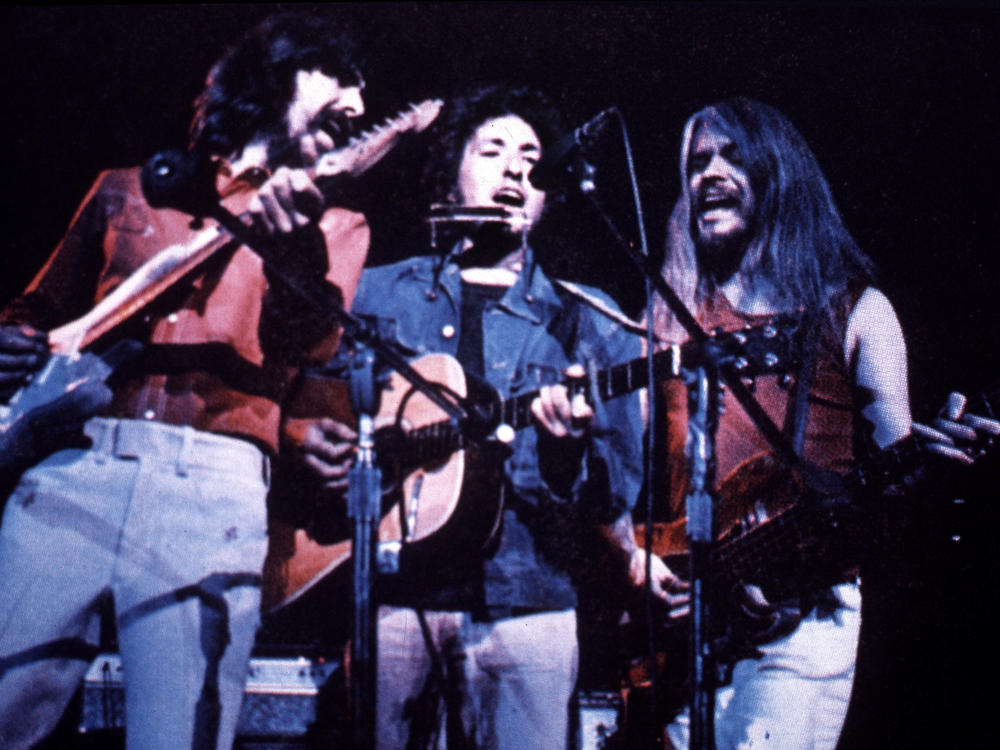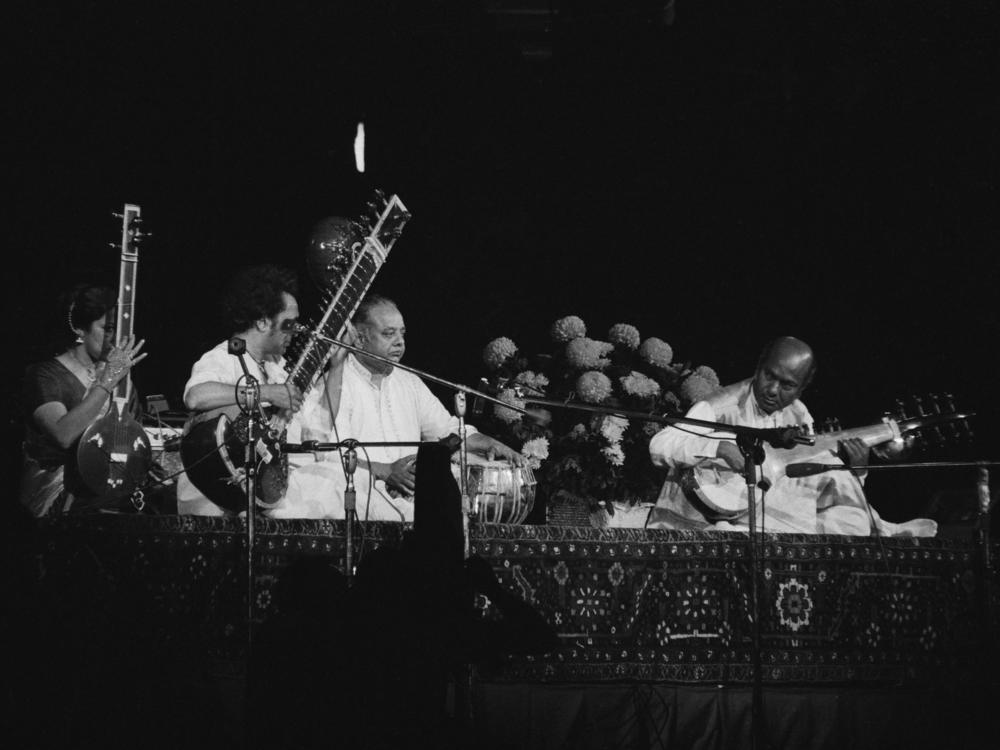Section Branding
Header Content
How The Concert For Bangladesh Changed The Celebrity Fundraiser
Primary Content
Fifty years ago, on August 1, 1971, the music world descended on Madison Square Garden for an event like no other. It was the first major charity concert of its kind — the Concert for Bangladesh. In that corner of South Asia, civil war, cyclone and floods had created a humanitarian disaster.
"There are six million displaced Bengalis, most of them suffering from malnutrition, cholera and also other diseases that are the result of living under the most dehumanizing conditions," former All Things Considered host Mike Waters reported in July of 1971.
The situation was deeply personal for Indian musician Ravi Shankar, a sitar virtuoso, whose family came from the region. So, Shankar reached out to a close friend, former Beatle George Harrison.
"And he resolved to do something about it ... It was simple as that," music journalist Graeme Thomson notes. "And of course, being a Beatle, he was very — you know — very well connected. So, he called his friends."
He marveled at the astonishing roster Harrison was able to attract. "You have a Beatle — two Beatles in fact — that you have Ringo Starr as well. You have Bob Dylan," Thomson says. "None of these people had played live particularly much in the preceding years. So, that was an event in itself. You have a stellar backing band, people like Eric Clapton." Including, of course, Shankar on the sitar.
Thomson says it was the first real act of great benevolence by the rock community. The Concert for Bangladesh set the template for a series of massive charity concerts that became popular in the 1980s, such as Live aid in 1985.
Producer Bob Geldof reached out to Harrison ahead of that event. According to Thomson, Geldof knew the Beatle could offer guidance on how to handle the money.
"The huge problem with [the Concert for] Bangladesh was that they hadn't picked the charity before the event," Thomson recalls. "Therefore, all the charitable breaks you would have, all the tax breaks you would have normally didn't apply. There was a huge amount of money that, A, went missing — and B, went to the taxman."
What they did end up making went to UNICEF. That weekend alone raised around $240,000. Millions more came later, as a result of the subsequent album and movie, all with the goal of helping refugees.
Copyright 2021 NPR. To see more, visit https://www.npr.org.


